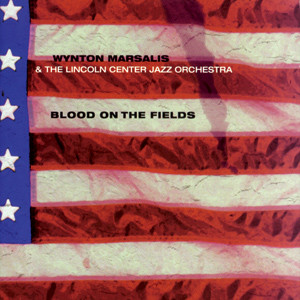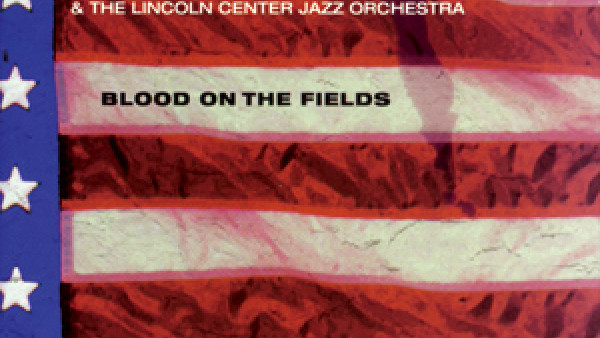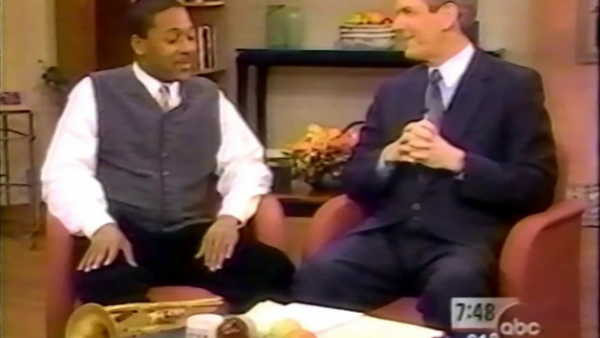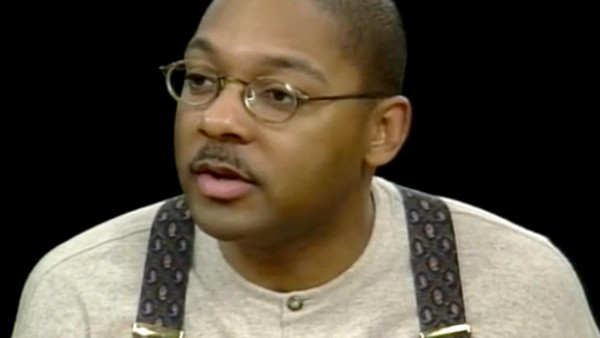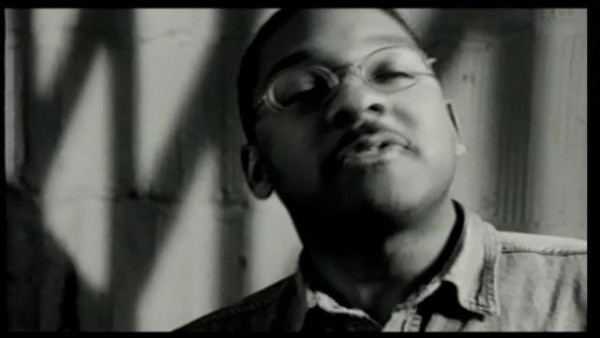Marsalis’s ‘Blood’: The Spirit Moves It
It’s not the ambition of Wynton Marsalis’s “Blood on the Fields” that’s astounding, but the composer’s assurance in addressing the shameful institution of American slavery. Marsalis’s oratorio, opening a two-night stand at the Warner Theatre yesterday, transforms what the libretto introduces as “crimes against the human soul far too large for any describing words to hold” into a smaller, more accessible tapestry.
Over the course of three hours of ever-shifting musical tableaux, Marsalis explores the journey of a man and woman stolen from Africa and forced to find a new life in America. The result is a frequently brilliant, occasionally flagging work that takes its place among the major extended compositions in jazz history.
Marsalis tells his story both in the richly detailed and emotionally resonant instrumentals performed by the 13-member Lincoln Center Jazz Orchestra and in the songs performed by the slaves Jesse and Leona (Miles Griffith and Cassandra Wilson) and the wise elder Jubba (Jon Hendricks).
“Blood on the Fields” opens with the cacophonous “Calling the Indians Out.” The psychic blur of abduction from Africa are reflected in the dissonant moans and cries of trombones and saxophones and a martial undercurrent of percussion. The differences between Jesse and Leona are immediately evident in the contrast between “Move Over,” where dislocation brings an unbearable sadness to the lowborn Leona (“I think I hear the drums . . . that same beat, the same damned beat of iron drums/ no memory/ stop it/ stop it”), and “You Don’t Hear No Drums,” in which a strutting pulse underscores Jesse’s royalty. “All you hear {is} the clattering of broken bones and homes,” Jesse sings.
The first half of “Blood on the Fields” is stronger for its contained focus and consistency. The slinky Carribean undercurrent of “The Market Place” can’t mask the seductive evil of the New Orleans slave market. The edgy solos give way to Hendricks’s almost genial banter as slave trader and buyer on “Soul for Sale,” in which humans are “reborn in this land of plenty as livestock/ Talking work animals.”
The impact of being sold into slavery is felt in the funereal “Plantation Coffle March,” a dialogue between Jesse and Leona in which Wilson’s deliberate, dirgelike delivery and the band’s tearful hues make palpable the anguish. “Work Song” has the riffing pulse of the engine whose pistons turn only through the blood and sweat of slaves, while “Lady’s Lament” is a supple and sinuous act of remembrance that seems to set the stage for Jesse’s escape from the plantation. Later, Leona’s regret at his capture and return “dog-bit, chain-burned,” fuels the blue ache of “My Soul Fell Down.”
It is in the instrumental “Forty Lashes” that Jesse’s transformation seems to occur, as he finds a deeper resolve and comes to terms with what he must do to achieve inner freedom. The majestic “I Hold Out My Hand” offers the redemptive power of love as a model.
The performance, which will be repeated tonight, was full of confident swing and supple funk (thanks to the insistent pulses provided by bassist Rodney Whitaker and drummer Herlin Riley). Among several strong instrumental showcases, “Back to Basics” most closely hewed to traditional big-band form with its assorted ensemble and solo showcases, including a bravura turn by Marsalis on trumpet-with-plunge that reflected his humor and reenergized spirits. In a stellar ensemble, several voices bear special notice: Wycliffe Gordon on trombone and tuba, Marcus Printup and Russell Gunn on trumpet, Victor Goines and Wess Anderson on saxophone, and Farid Barron on piano.
Wilson, with her husky confessional delivery, and Griffith, with his proud rough-hewn vocals, were impressive in their storytelling, though the veteran Hendricks proved the most effective showman in a limited role.
by Richard Harrington
Source: The Washington Post

